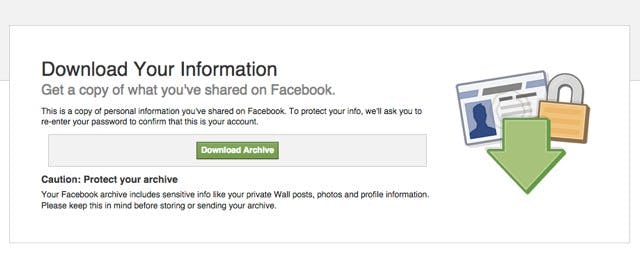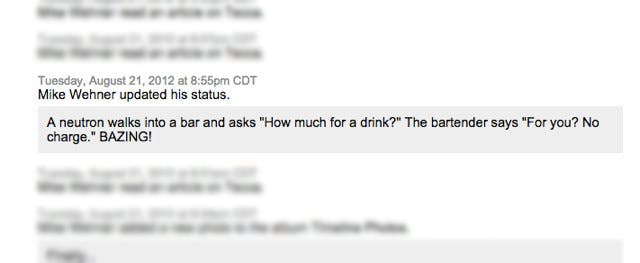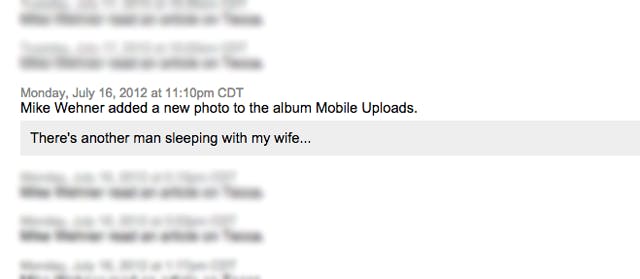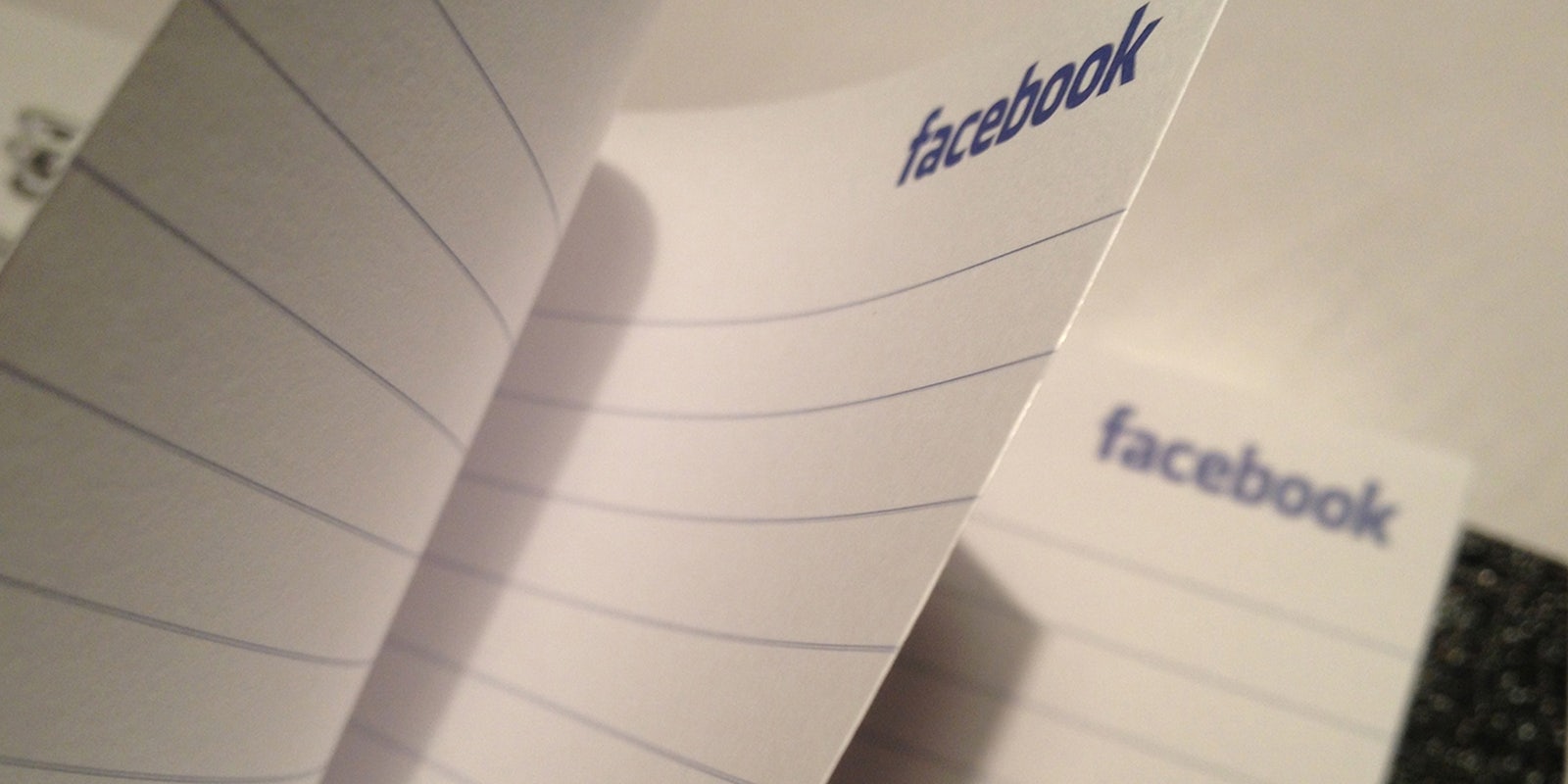Depending on how long you’ve been a member of Facebook, there’s a good chance you’ve gone through some serious life changes since you first signed up. Graduations, new relationships and break-ups, and maybe even a kid or two could all be documented by your years of social updates, and Facebook makes it relatively easy to download it all in one neat package.
Going through years of status updates, photos, and wall posts (remember when they still called it the “wall”?) can be a pleasantly nostalgic experience. It can also be absolutely horrifying if you’re not prepared for what you’re about to see.
First thing’s first: You need to request your Facebook archive file. Doing this is simply a matter of clicking on your Facebook settings option and then selecting “Download a copy of your Facebook data” from the bottom of the settings list.
Clicking this will take you to a page where you can officially request your archive, at which point you’ll have to re-enter your password. In most cases your archive will not be able to be downloaded immediately. Instead, you’ll get an email when your file is ready to be fetched. This can take anywhere from a few minutes to days, and Facebook isn’t terribly transparent about what factors alter the wait time.

Your archive will be provided to you as a zipped file containing an HTML file labeled “Index” as well as three folders: HTML, photos, and videos. The Index file contains things like your contact list, settings, and history of private and public messages—all of which are pulled from the content of the HTML folder—while your photos and videos are stored in the folders labeled as such.
And now, prepare to meet the Old You.
I’d suggest going through your archive alone, and in a private place where you can sigh, cringe, and openly criticize yourself without fear of strange gazes from onlookers. You see, you’re not the same person you were in the mid-2000s when many first registered a Facebook account, and there’s a good chance the “new you” is going to be embarrassed by the “old you.” Very, very embarrassed.
In order to help prepare you for the unavoidable horrors that lie within your Facebook history, here are some examples of things you should expect to encounter. Brace yourself.

- Bad jokes – Your jokes were bad, and probably still are. Let this be a lesson to you that there is no such thing as a Facebook comedian.
- Political statements you no longer support – We’ve all gotten wrapped up in political movements that looked a bit different in hindsight, so don’t be too hard on yourself for thinking that a write-in vote campaign for your favorite talk show host was a good idea.
- Bold declarations about life that you now realize were wrong all along – You woke up one day with a spring in your step and decided—over a nice warm shower, no doubt—that you had life all figured out. The resulting Facebook post sounded sage and wise in your head, but you now realize just how absurd it really was.
- Public displays of affection involving people you now hate – Your posting archive is listed chronologically, so do your best to avoid Valentine’s Day updates if there’s an ex-significant-other that you once openly declared your adoration for in a particularly crippling way.

- Posts that make no sense without the photo attached – Your Facebook text updates are stored separately from the photos that once accompanied them, which is going to lead to some confusion if you can’t quite remember what you were talking about at the time it was posted. (For the record, the “other man” was my cat, Nibbler.)
- Photos you wish you’d taken with a better camera – Before the days of smartphones, the most convenient camera was usually a sub-megapixel lens attached to a flip phone, and boy did those photos age horribly. They’re blurry, strangely colored, and quite ugly to look at. Sure, there’s probably an Instagram filter that makes your current photos look the same way, but at least that’s a choice, right?
The good news here is that thanks to Facbeook’s current layout, the chances of anyone taking the time to scroll far back enough into your history to find any of this cringe-worthy material is pretty slim. That being said, it is still on the Internet for all to see, and if you find anything in your social past that could cause you trouble in your current job or relationships, it might not hurt to go back and wipe it from Facebook’s conciousness.
Photo via Sarah Marshall/Flickr (CC BY 2.0)

